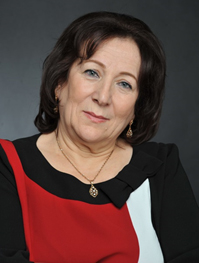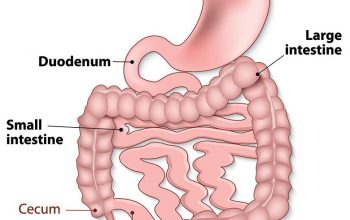
Mirzoyeva Elmira Amir, PhD., Professor
PhD. in General psychology, psychology of development and acmeology
Azerbaijan Association of Practical Psychologists,
President
Diabetes Mellitus – global, medical-psycho-social and humanitarian problem of the XXI century.
According to the latest information, more than 1000 children and teenagers have been registered as patients suffering from Diabetes Mellitus in Azerbaijan. The annual growth rate is about 2.8 %. Incidence rates increase with age, and most cases occur in the age group of 8-14 years.
As is generally known, correct treatment of children with insulin dependent diabetes has its complexity and specificity that is largely determined by difficulties in motivation associated with psychological immaturity, emotional instability, unpredictability, fear of injections, much complicating the way to achieve compensation of carbohydrate metabolism, improve the quality of life, as well as preventing the development of serious complications of diabetes. And in this case group psychotherapy plays a huge role in achievement of the desired results, which gives children the opportunity to exchange experiences, reduce feelings of loneliness, gives them psychological support, ability to monitor the positive dynamics on the example of his comrades.
The aim of summer schools organized by AAPP
(Azerbaijan Association of Practical Psychology)
- Psycho-social rehabilitation of children and teenagers
- Improvement of the standard of knowledge in regard to Diabetes Mellitus
- Revelation of gifted, talented children with leadership characters and mental stability for the purpose of training of volunteers and leaders that may express their knowledge, skills and experience
The ways of goal achievement
- Studies in School of Diabetes
- Individual consulting and Psychotherapy
- Group psycho-social training discussions, evening of revelations through sitting around the fire
- Relaxation training on the shore of sea and in nature
- Regular sports
- Insulin injection according to the individually made scheme
- Strict dieting
Average level of sugar in the blood of children and teenagers that took part in summer school
- Average level of sugar in the blood on an empty stomach
- Average level within postprandial glycaemia on an empty stomach
- Average level of glycated hemoglobin
After returning home these children continued to attend in the below-mentioned trainings together with their parents:
- Healthy life-style
- School of Diabetes
- Children’s rights
- Communicative intercourse
- School of leadership
Key words:
- Diabetes Mellitus
- Global problem
- Summer school
- Psychotherapy
- Tolerant relationship
- diet
In order to provide psycho – social aid, 30 children aged 12 to 17 years with insulin dependent diabetes are involved in the Summer School every year. All children up to arrival at the camp were on intensive insulin therapy of different schemes. The mean disease duration ranged from 2 to 9 years. The children were from families of different social conditions that affect their psychological status.
In terms of glycemic profile children were divided into 3 groups.
Group I included children who knew and possessed the basic principles of self-control, which independently choose the right dose of insulin according to the level of glucose in the blood. They owned extensive information about their illness, did not hesitate to participate in the discussions about diabetes, distinguished from others with self-confidence, were optimistic and easily endured hypoglycemia that occurred during physical activities, swimming, in the gym and during sports games.
Physical development and mental abilities of these children meet certain age requirements. Psychological status differed optimism and confidence in the future. These children were convinced that diabetes is not a disease but a way of life, and it is not able to prevent their full development.
The average level of blood sugar in the I group (see Table 1)
Group II included 20 children who knew the basic rules of self-control, who were several times trained in the past in the steady-state conditions. But these children couldn’t or didn’t want to achieve self-control or some of them did it irregularly. 7 children in this group were injected insulin before dinner.
Physical and mental development in this group is not very different from the first group. But emotional instability was observed and some children showed aggressiveness. Average blood sugar levels in group II (Table 1)
The third group consisted of children who lived in the provincial regions of Azerbaijan. The children were not trained and had a vague idea about their illness, especially about self-control although all had personal home glucometer. Fortunately, the average duration of the disease in this group was less than 2 years of three children and about 2.5 years of a boy.
Average blood sugar levels in group III ( Table 1). Children in this group owned different personal qualities such as helplessness, insecurity, inadequate self-esteem . But significant gaps in physical and mental development was not observed most likely was due to the short period of the disease.
From the first day multiple measurements of blood sugar were conducted by children under the supervision of physicians and appropriate dose of insulin was chosen. For children with high levels of blood glucose, blood sugar checked carefully before and 2 hours after a meal, as well as at bedtime.
Psychological rehabilitation included psychological sessions aimed at suggestion of self-confidence, strengthening sense of security, friendship, support, love and respect to the feelings of parents and family members who care of them, to doctors and medical staff who treat and teach them. For difficult children individual psychotherapy and counseling with observing high level of privacy were conducted, which allowed children to overcome their shame and fear and start talking about their feelings associated with diabetes and family problems. After some time many children overcame this barrier.
Upon returning home, these children and adolescents with parents began attending classes
- Healthy Lifestyle
• School of Diabetes
• Rights of the Child
• communicative dialogue
• School leadership
Parents who initially hardly gave their children for 15 days, after seeing personal growth and normalized blood sugar level, also joined the process. A center was established named “Good Friends ,” which consisted of children with diabetes , their parents, doctors, psychologists, teachers and volunteers .
Table 1
| Indications | 1st GROUP
|
2nd GROUP
|
3rd GROUP | |||
|
BEFORE
|
AFTER 6 MONTHS
|
BEFORE
|
AFTER 6 MONTHS
|
BEFORE
|
AFTER6 MONTHS |
|
| I. | 5.6±1,2
(mmol/l)
|
4.8±1.3
(mmol/l) |
9.6±2,5
(mmol/l) |
8.6±2.3
(mmol/l) |
12.2±1.2
(mmol/l) |
8.1±2.2
(mmol/l) |
| II. | 7.1±1,3
(mmol/l) |
6.8±1.1
(mmol/l) |
10.3±3.2
(mmol/l) |
9.3±2.5
(mmol/l) |
3.5±1,8
(mmol/l) |
9.8±2.7
(mmol/l) |
| III. | 7.2±0.6% | 6.5±0.3%
|
9.6±1.1% | 7.5±1%
|
11.5±1,8% | 8.4±1.6% |


